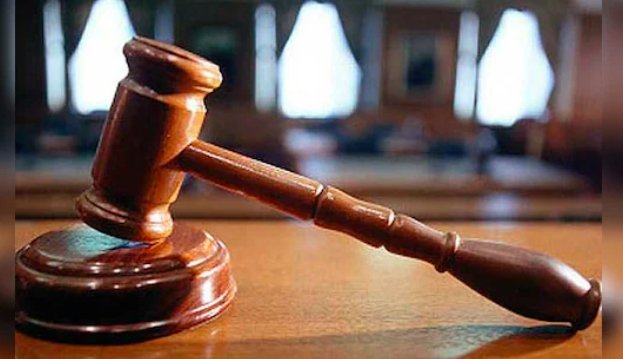After months of legal back-and-forth, a Delhi court has cleared the way for Naijil Paul to be extradited to the United Kingdom, where he faces serious criminal charges including rape and sexual assault in Scotland.
The extradition of Naijil Paul, an Indian national accused of multiple sexual offences in the UK, was approved by a Delhi court on Friday, marking a crucial step in a case that spans two continents and several years.
Paul, who fled the UK to evade prosecution, was arrested in Kochi in late 2024. Since then, the UK government had been seeking his return under the India-UK extradition treaty. That process now moves forward, with the ball in the Ministry of External Affairs’ court.
Fugitive Wanted for Serious Sexual Crimes
Paul stands accused of rape, sexual assault, and “communicating indecently” with a woman in Scotland. While details of the offences are not publicly disclosed due to privacy laws in the UK, authorities describe the allegations as “grave and highly credible.”
Court records indicate that the victim was known to Paul. The timeline of alleged offences reportedly spans several months, culminating in formal charges issued by Scottish prosecutors in 2023.
After being charged, Paul fled the UK—reportedly just days before his first court hearing.
One sentence for pause.

Arrested in Kerala After Months on the Run
After disappearing from the UK, Paul returned to India, blending back into civilian life. For months, he avoided detection. His arrest in Kochi in 2024 came after British authorities coordinated with Indian intelligence and tracked him through immigration data and digital trails.
At the time of arrest, Paul was residing under his real name. Sources say he did not attempt to change his identity or apply for protection in India.
His quiet arrest and transfer to New Delhi went largely unnoticed—until Friday’s court ruling made headlines.
Court Backs Centre’s Call for Extradition
The extradition hearing was conducted in the court of Additional Chief Judicial Magistrate (ACJM) Pranav Joshi, who was tasked with evaluating the Indian government’s extradition request, based on the UK warrant and supporting evidence.
The Centre had issued a formal order in December 2024 asking the court to assess whether a prima facie case was made against Paul. That’s the first hurdle in any extradition request—whether the evidence justifies shipping someone out of the country to stand trial elsewhere.
After months of review, ACJM Joshi agreed.
In his ruling, Joshi said there was “sufficient evidence to believe” that Paul’s extradition request was not only legally valid, but also “necessary and just.”
Paul’s defence argued that he was being targeted unfairly and claimed that the UK case was “politically motivated” and “procedurally flawed.” But the court wasn’t convinced.
It dismissed the defence’s objections and cleared the case to move forward.
What Happens Next?
Now that the court has certified the case, the matter returns to India’s Ministry of External Affairs (MEA). They will coordinate with the British High Commission and initiate the final leg of extradition.
At this stage, Paul may still appeal to higher courts, including the Delhi High Court or the Supreme Court of India, on constitutional or humanitarian grounds.
But if MEA approves and no further stays are granted, Paul could be back in Scottish custody in a matter of months.
A short line here.
India-UK Extradition: Rare But Increasing
India and the United Kingdom signed an extradition treaty in 1992. But extraditions between the two nations are notoriously tricky. Delays, appeals, and political controversies have slowed down several high-profile cases.
Some notable India-UK extradition cases:
| Name | Allegation | Status |
|---|---|---|
| Vijay Mallya | Bank fraud, money laundering | Pending appeals in UK |
| Nirav Modi | PNB scam, fraud | Approved for extradition |
| Naijil Paul | Rape, sexual assault, indecent conduct | Cleared by Delhi court (June 2025) |
While financial crimes have dominated headlines, this is one of the few successful extradition approvals for a sexual offence case between the two countries.
Legal experts say the nature of the charges and cooperation from Scottish prosecutors made the difference.
Reaction from UK and Legal Circles
In the UK, where the case was largely stalled due to Paul’s absence, Friday’s decision is being viewed as a breakthrough.
The Crown Office and Procurator Fiscal Service (COPFS), which leads prosecutions in Scotland, declined to comment on the Indian court ruling but reaffirmed that they “remain committed to seeing justice served.”
Meanwhile, Indian lawyers and human rights activists are split.
Some support the extradition as a necessary response to serious allegations. Others warn about the need for oversight.
“Any extradition on rape charges must be watertight,” said Supreme Court advocate Ritika Mehra. “Due process must be respected here and there. No shortcuts.”
The Bigger Picture
Beyond just one man’s legal fate, this case reflects something more—the increasingly global nature of justice. What begins in one country doesn’t stay there. And absconding isn’t a foolproof escape anymore.
Paul may still fight. But his legal avenues are shrinking.
As of today, India’s courts have said clearly: the allegations deserve to be heard in a UK courtroom.


















